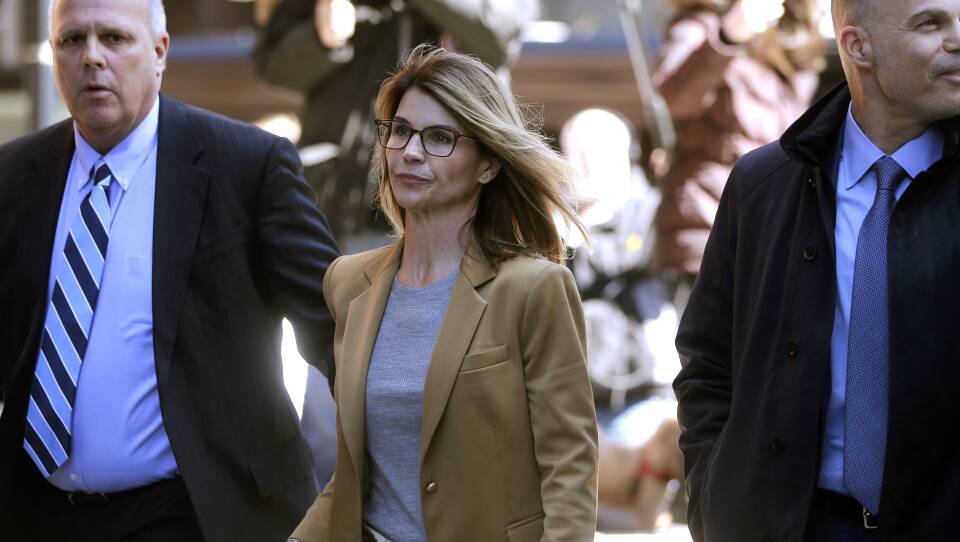Actresses Lori Loughlin and Felicity Huffman were among 13 parents who appeared in federal court Wednesday to face charges in the college admissions scandal, following appearances by 15 other parents in Boston last week. A total of 33 have been caught up in the scheme.
Loughlin and her husband, fashion designer Mossimo Giannulli, allegedly paid half a million dollars in bribes to athletic coaches who designated their two daughters as recruits for the University of Southern California crew team, even though neither of them row. The couple faced a wall of TV cameras — and fans — as they arrived in Boston’s Seaport District and then inside the packed courtroom where they faced fraud charges.
After the FBI in Boston revealed the elaborate admissions scam last month, Loughlin turned herself in to authorities. Both Loughlin, who starred in "Full House," and Giannulli have already posted $1 million bail in California, secured by their residence and other assets.
Huffman, the star of "Desperate Housewives," allegedly paid $15,000 for a ringer to take the SAT exam for her daughter. Before sitting down to face fraud charges, a smiling Loughlin shook hands with federal prosecutors.
Another parent who appeared in court on Wednesday was John Wilson, a private equity executive from Lynnfield, Mass. In 2013, federal authorities say, Wilson conspired to bribe the water polo coach at the University of Southern California. The goal was to get his son designated as an athletic recruit and help guarantee his admission to USC even though his son didn’t play the sport.
In late 2014, prosecutors say, USC sent Wilson a gift receipt for a $100,000 donation, which Rick Singer, the admissions consultant at the center of the scheme who has pleaded guilty, told him he could write off on his taxes as a business expense and a charitable contribution. Wilson is also accused of paying $1 million to try to secure spots for his daughters at Stanford and Harvard.
If convicted, Loughlin, Huffman, Giannulli and Wilson could face a maximum of 20 years in federal prison and a $250,000 fine, though they could receive shorter sentences as first-time offenders. All four are charged with conspiracy to commit mail fraud and honest services mail fraud.
Read more: How Parents Of The College Admissions Scandal Allegedly Exploited The US Tax Code
Outside the Moakley Courthouse, 20-year-old Alyssa Stevens of West Springfield, Mass., said she’s disappointed in Loughlin, but still wanted to show her support.
“You make mistakes. People get mad at you, but you just keep going,” Stevens said.
For many Americans, the case has resurfaced the notion that admissions at the country's selective colleges is rigged in favor of the wealthy and privileged.
Lawmakers in California have proposed a series of bills that would ban preferences in admissions for the children of alumni and donors. California already bans such preferences at public colleges, and one proposal would extend that to private schools like USC if they want state financial aid for their students.
Jerry Lucido, a professor of education at the University of Southern California, said he worries about unintended consequences of withholding state funds.
"I'm concerned about anything that would reduce student aid to students who need it, but a policy doesn't have a lever unless it's got money attached to it," Lucido said, adding that schools would work around the policy.
"Do colleges then begin simply to take more students early because they know that's where their legacies will be?” Lucido asked. “Do they do other things that will advantage these same individuals?"
Lucido suggests private schools should disclose publicly whether they provide any advantages to donors' children in admissions.





